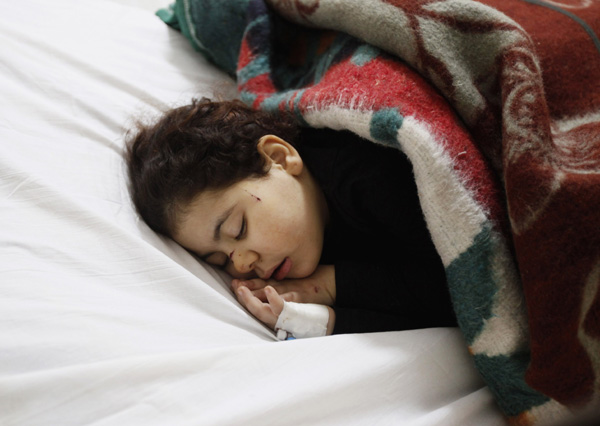Car bomb kills 13 at Egyptian police compound
CAIRO - A car bomb tore through a police compound in Egypt's Nile Delta on Tuesday, killing 13 people and wounding more than 130, security officials said, in one of the deadliest attacks since the army deposed Islamist President Mohamed Mursi in July.
The army-backed government vowed to fight "black terrorism", saying the blast an hour after midnight in the city of Mansoura north of Cairo would not derail a political transition plan whose next step is a January referendum on a new constitution.
The attack prompted a cabinet statement declaring Mursi's Muslim Brotherhood a "terrorist organisation", though a state news agency report did not explicitly accuse the group of staging the attack. Mursi's group condemned the bombing.
With at least eight policemen among the dead, the blast underlined the risk of militancy moving to the densely populated Nile Valley from the Sinai Peninsula, where attacks have killed some 200 members of the security forces since Mursi's downfall.
"We face an enemy that has no religion or nation," Interior Minister Mohamed Ibrahim, the survivor of an assassination attempt in Cairo in September, said at the scene of the blast.
The army said a car bomb had been used in what it called a "vile terrorist attack", while the presidency said such attacks "only increase the state's determination to uproot terrorism".
Police "combat units" would deploy across the country with orders to use live ammunition, state TV reported.
Egypt has suffered the deadliest internal strife in its modern history since the army deposed Mursi, the nation's first freely elected leader, on July 3 after big protests against him.
The security forces killed hundreds of his supporters as part of a campaign to repress his Muslim Brotherhood, while lethal attacks on the security forces have become commonplace.
Some analysts say Egypt could face a sustained Islamist insurrection, a risk compounded by a flood of weapons smuggled out of neighboring Libya since the uprising against Muammar Gaddafi began there almost three years ago.
In a statement from its London media office, the Brotherhood condemned the blast as "an attack on the unity of the Egyptian people".
SINAI ATTACKS
The state has outlawed the Brotherhood and driven it underground, jailing thousands of its supporters and accusing the group of turning to violence, a charge it denies.
The Sinai Peninsula, which borders Israel and the Gaza Strip to the east, has been the site of most of the major attacks since Mursi's ouster: a car bomb killed 10 soldiers there in November, and 24 policemen died in an August ambush.
Many of the Sinai attacks, as well as the failed attempt on the life of Ibrahim, the interior minister, have been claimed by a group called Ansar Bayt al-Maqdis (Supporters of Jerusalem).
There have also been lethal attacks on security forces in the Nile Delta, though nothing on the scale of Tuesday's blast.
"An attack of this type has the effect of intimidating people and discouraging them from taking part in the (constitutional) referendum," said Mustapha Kamel Al-Sayid, a professor of political science at Cairo University.
Ibrahim described the car bombing as an attempt to terrorise citizens before the mid-January vote, which is to be followed by presidential and parliamentary elections next year. He said the security forces would fully secure the referendum.
State television showed the bombed police compound with shattered windows and one wall partially collapsed. A bulldozer was removing rubble in the street outside. Residents rushed to hospitals to check on the casualties. Egypt's Nile News TV broadcast late-night appeals for blood donations.
Mansoura has been the scene of other attacks since Mursi's removal. Five policemen were wounded in July by an explosive device thrown at a police station. In October, three policemen were killed when masked men attacked a checkpoint in the city.
Last week state prosecutors ordered Mursi and other Brotherhood leaders to stand trial on charges including scheming with foreign militants to carry out terrorist attacks in Egypt.
The Brotherhood described those charges as risible.




























